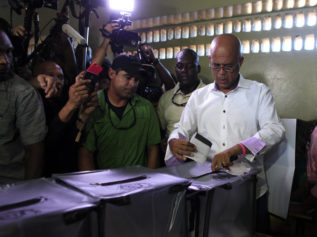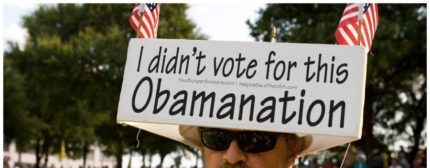As Kenyans began lining up to vote today in an important election for the country’s leadership after the creation of a new constitution, there were reports of brutal election-related deaths, including police officers, in several pockets of the nation—but nothing like the violence during the disputed election in 2007 that killed more than 1,200 people.
An estimated 100,000 police officers are being deployed in an election where 14 million are expected to vote.
The violence occurred in the coastal city of Mombasa and in Kilifi. In Mombasa, a machete-wielding gang ambushed police officers who were deployed to keep peace, killing four of them before the opening of polling stations.
“Our officers who were on night patrol were attacked by a gang of youths wielding machetes and as a result four of the officers were killed. Two among the dead are senior officers who were overseeing the patrol,” said Ambrose Munyasia, chief of police intelligence in the Coast area.
According to Al Jazeera, 13 people were killed in Mombasa, including six police. Sources say it was the work of the Mombasa Republican Council, a secessionist group on Kenya’s coast. But Al Jazeera reporter Peter Greste said it would be a mistake to extrapolate the Mombasa violence to the rest of the country.
This is “a very volatile situation on the coast. Mombasa is a very, very specific situation,” he said.
In Kilifi, another gang assaulted security forces at a school being used as a voting center, killing at least four officers.
In some places, voters have been waiting for more than six hours to cast ballots for president, senators, members of parliament, county governors and representatives to the newly formed county assembly.
Festus Mogae, former president of Botswana who is leading the team of observers for the election, told Al Jazeera he is so far “impressed” by the number of people turning out to vote.
“All I see is enthusiasm,” Mogae said from Nairobi.
Last month, the International Criminal Court ruled that although one of the main candidates, Uhuru Kenyatta, is facing trial in April before the court for crimes against humanity, he can still run for president. The ruling by the ICC not to interfere with Kenya’s election meant that the people of Kenya are free to cast a ballot for a candidate who may be convicted, along with his running mate William Ruto, of orchestrating clashes in the ethnic violence that erupted after disputed elections in 2007. That violence resulted in more than 1,100 deaths and caused 350,000 others to flee their homes. It also slowed the growth of East Africa’s largest economy.
Both Kenyatta, the son of Kenya’s founding president, and Ruto deny any wrongdoing.
According to Kenyan opinion polls, Kenyatta, the deputy prime minister, was running close behind Prime Minister Raila Odinga.
On the eve of the election, Mwai Kibaki, the outgoing president, appealed for a peaceful vote.
“I also make a passionate plea for all of us to vote peacefully. Indeed, peace is a cornerstone of our development,” Kibaki, who is barred from seeking a third five-year term, said to his countrymen in a televised address before polling day.

